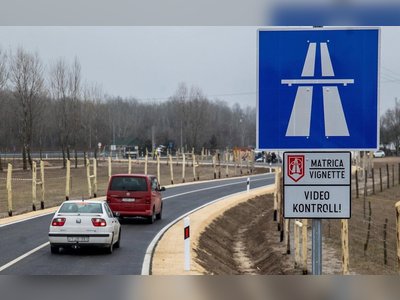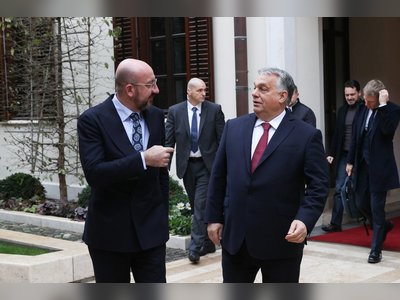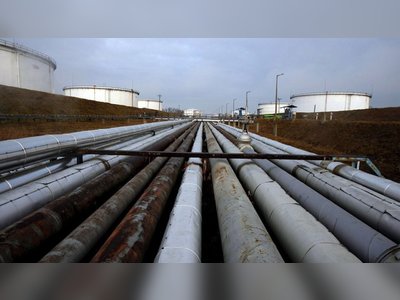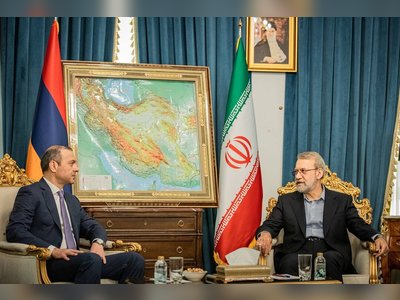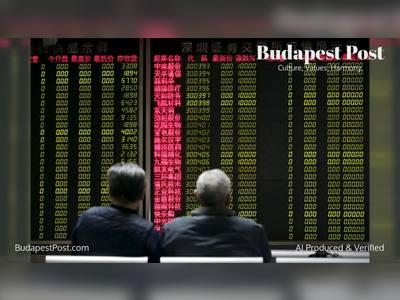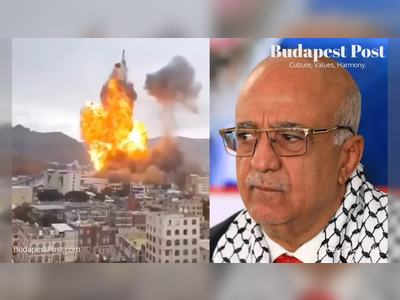
Poland's Presidential Election Heads to Critical Runoff Amid Rising Tensions
The impending runoff has significant implications for the country's governance, electoral dynamics, and international alliances.
Poland is poised for a decisive presidential election runoff this Sunday, following a closely contested first round that has raised questions about the political future of the nation.
With incumbent President Andrzej Duda's support for the ruling Law and Justice party (PiS), the election outcome is seen as pivotal for the direction of governance in Poland.
Rafal Trzaskowski, the mayor of Warsaw and nominee of the Civic Coalition, emerged as the frontrunner in the first round, however, his coalition partners face challenges in mobilizing voter support.
Szymon Hołownia, head of the Poland 2050 party, received less than 5% of the votes, indicating a lack of backing from his own party's base for the coalition's efforts.
The voter turnout in the first round was approximately 7 percentage points lower than observed in the recent parliamentary elections in 2023, raising concerns for Trzaskowski's campaign about garnering adequate support in the runoff.
The geographic disparities in voter engagement suggest substantial potential support for him in regions traditionally aligned with the Civic Coalition.
The stakes for governance are high, as legislative gridlock has plagued the current administration, with Duda often vetoing bills passed by the ruling coalition.
If Trzaskowski succeeds in this election, it would pave the way for smoother legislative processes, enabling the implementation of the coalition's agenda.
Conversely, a victory for Karol Nawrocki, the candidate affiliated with the PiS, would likely perpetuate existing governance challenges, mirroring the stalemate experienced under Duda’s presidency.
The election has drawn international attention, with public figures such as Elon Musk and Marco Rubio commenting on the Polish government's actions, and Nawrocki receiving endorsement from former President Donald Trump.
These interactions reflect a broader concern regarding the potential redirection of Polish foreign policy under a PiS presidency.
On the security front, discussions about enhancing military capabilities have surfaced, including the consideration of a potential Polish nuclear program.
This comes amidst shifting dynamics in military alliances and security assurances, with Poland seeking to reinforce its regional strength, leveraging relationships with Western allies.
There are indications of a possible shift in Poland's traditional strategy towards more flexible foreign policy arrangements, exploring collaborative security frameworks beyond NATO.
The recent signing of a premium defense agreement with France exemplifies a strategic pivot, emphasizing Poland's growing military aspirations in the region.
As Poland navigates this critical electoral phase, the outcomes may not only reshape its internal political landscape but also its role and alliances on the global stage.
With incumbent President Andrzej Duda's support for the ruling Law and Justice party (PiS), the election outcome is seen as pivotal for the direction of governance in Poland.
Rafal Trzaskowski, the mayor of Warsaw and nominee of the Civic Coalition, emerged as the frontrunner in the first round, however, his coalition partners face challenges in mobilizing voter support.
Szymon Hołownia, head of the Poland 2050 party, received less than 5% of the votes, indicating a lack of backing from his own party's base for the coalition's efforts.
The voter turnout in the first round was approximately 7 percentage points lower than observed in the recent parliamentary elections in 2023, raising concerns for Trzaskowski's campaign about garnering adequate support in the runoff.
The geographic disparities in voter engagement suggest substantial potential support for him in regions traditionally aligned with the Civic Coalition.
The stakes for governance are high, as legislative gridlock has plagued the current administration, with Duda often vetoing bills passed by the ruling coalition.
If Trzaskowski succeeds in this election, it would pave the way for smoother legislative processes, enabling the implementation of the coalition's agenda.
Conversely, a victory for Karol Nawrocki, the candidate affiliated with the PiS, would likely perpetuate existing governance challenges, mirroring the stalemate experienced under Duda’s presidency.
The election has drawn international attention, with public figures such as Elon Musk and Marco Rubio commenting on the Polish government's actions, and Nawrocki receiving endorsement from former President Donald Trump.
These interactions reflect a broader concern regarding the potential redirection of Polish foreign policy under a PiS presidency.
On the security front, discussions about enhancing military capabilities have surfaced, including the consideration of a potential Polish nuclear program.
This comes amidst shifting dynamics in military alliances and security assurances, with Poland seeking to reinforce its regional strength, leveraging relationships with Western allies.
There are indications of a possible shift in Poland's traditional strategy towards more flexible foreign policy arrangements, exploring collaborative security frameworks beyond NATO.
The recent signing of a premium defense agreement with France exemplifies a strategic pivot, emphasizing Poland's growing military aspirations in the region.
As Poland navigates this critical electoral phase, the outcomes may not only reshape its internal political landscape but also its role and alliances on the global stage.
AI Disclaimer: An advanced artificial intelligence (AI) system generated the content of this page on its own. This innovative technology conducts extensive research from a variety of reliable sources, performs rigorous fact-checking and verification, cleans up and balances biased or manipulated content, and presents a minimal factual summary that is just enough yet essential for you to function as an informed and educated citizen. Please keep in mind, however, that this system is an evolving technology, and as a result, the article may contain accidental inaccuracies or errors. We urge you to help us improve our site by reporting any inaccuracies you find using the "Contact Us" link at the bottom of this page. Your helpful feedback helps us improve our system and deliver more precise content. When you find an article of interest here, please look for the full and extensive coverage of this topic in traditional news sources, as they are written by professional journalists that we try to support, not replace. We appreciate your understanding and assistance.
